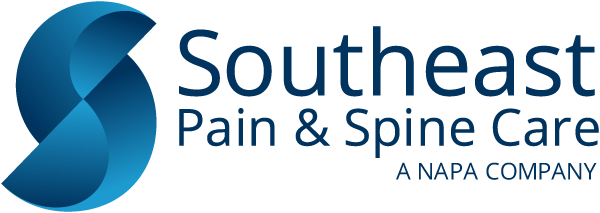Living with CRPS: Ways to Feel Better
PUBLISHED ON:
July 9, 2021
Living with Complex Regional Pain Syndrome (CRPS) can significantly impact your life. And if you or a loved one is dealing with this often debilitating condition, you’ve likely tried several things to reduce your pain and improve your quality of life. Whether you’ve just been diagnosed with CRPS, have been living with the condition for a long time or are wondering if your pain could be CRPS, Southeast Pain and Spine Care can help. Let’s take a look at how you can live more comfortably with CRPS.
Why CRPS is Different from Other Chronic Pain Conditions
What sets CPRS apart from other chronic pain conditions, according to Reflex Sympathetic Dystrophy Syndrome Association, is the severity of pain. CRPS patients frequently experience severe levels of pain — rating it 42 out of 50 on the McGill University Pain Scale. Patients have referred to it as the most painful condition to have — outranking the pain from childbirth or limb amputation.
Why Does It Happen?
When the body receives an injury, pain and inflammation result. As the healing process progresses, the pain and inflammation usually decrease but with CRPS, the pain and inflammation remain and oftentimes increase. This happens due to damage to or dysfunction of peripheral sensory neurons, according to the National Institutes of Health (NIH). It most commonly occurs following a traumatic injury to an arm or leg, and is most common in people in their 40s.
“In more than 90 percent of cases, CRPS is triggered by nerve trauma or injury to the affected limb that damages the thinnest sensory and autonomic nerve fibers. These “small fibers”—which lack insulating thick myelin sheaths (a protective coating, like insulation that surrounds a wire)—transmit pain, itch, and temperature sensations and control the small blood vessels and health of almost all surrounding cells,” the NIH notes.
Ways to Live More Comfortably with CRPS
While the pain is often severe, there are things you can do to improve your quality of life:
- Physical Therapy: Though it might seem counterintuitive, moving your affected limb or limbs improves blood flow, lessens any circulatory symptoms, maintains flexibility and can improve strength. Rehabilitating the limb can also help “prevent or reverse secondary spinal cord and brain changes associated with disuse and chronic pain,” according to NIH.
- Psychotherapy: Living with chronic severe pain can unsurprisingly affect your mental health and that of your family or caretakers. You might find you or your caretakers or loved ones experience depression, anxiety or even PTSD. All of these conditions can worsen your perception of pain, which can impact your recovery and daily functioning. Some patients may also find some relief in embracing their condition and accepting the pain. Resisting the pain or fighting the condition can worse your perception of pain as well.
- Medication: Medications can help with CRPS, particularly if you receive them early in the course of the condition. Medications that have been shown to help include:
- Acetaminophen or NSAIDS
- Neuropathic pain drugs like gabapentin or nortriptyline
- Local anesthetic sprays or creams
- Corticosteroids
- Spinal Cord Stimulation: Spinal cord stimulation works by creating sensations in the painful area that block pain signals. It can also help normalize spinal cord and brain signaling.
- Alternative Options: Some patients have found they have a better quality of life using alternative options in conjunction with standard therapies. These can include things like:
- Breathing exercises
- Distraction
- Visualization
- Yoga or biofeedback
If you or someone you love is struggling with CRPS, Southeast Pain and Spine Care can help. Our treatments can help reduce your pain and get you back to enjoying life. Contact us for an appointment today.
Southeast Pain and Spine Care is proud to announce its participation as a sponsor for the Annual Fight the Flame 5K in Charlotte. This local event raises awareness for CRPS.
PUBLISHED ON:
July 9, 2021


